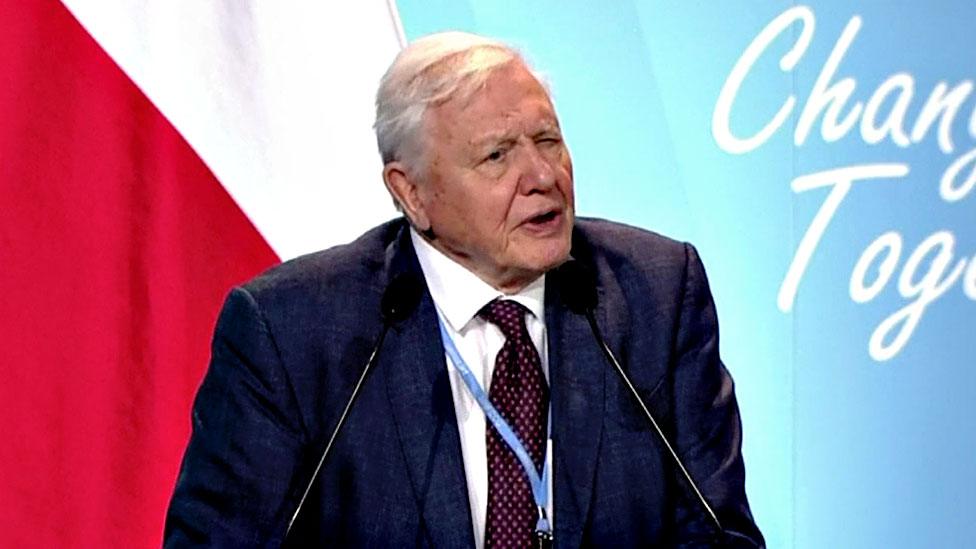France protests: Will the environment be the true victim of the fuel-tax riots?
- Published
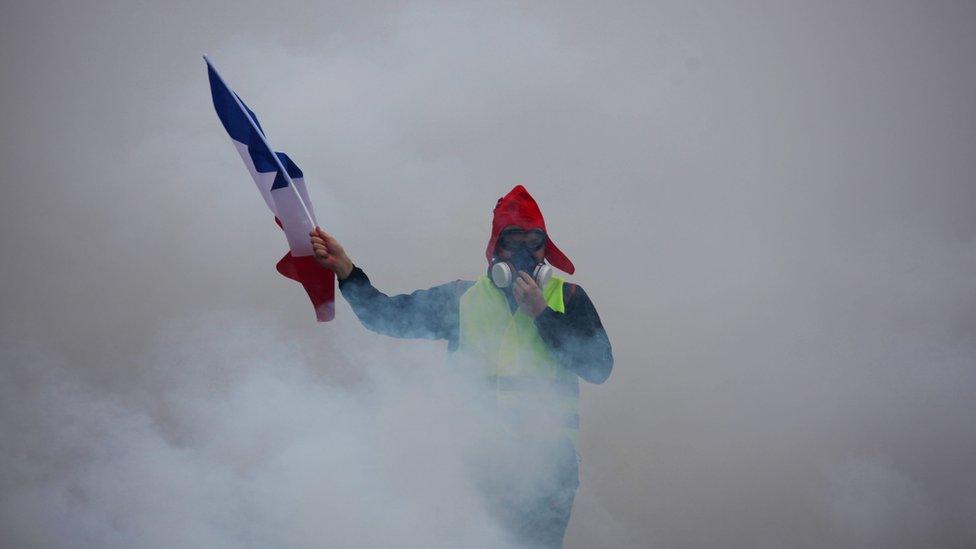
Thousands of people have been taking part in demonstrations
The pictures of Paris swathed in tear gas, with burning cars and angry protesters rampaging through the streets in high-vis jackets demanding an end to a fuel tax rise have been seen across the world.
That so-called carbon tax had already increased diesel by 7.6 cents per litre and petrol by 3.9 cents in the last year, and it was due to rise again in January.
Yet as the rage over the added expense spilled into the cities and on to front pages, the original reason for the increase became somewhat lost.
It was supposed to help reduce the country's reliance on fossil fuel-guzzling cars, part of a wider attempt to reduce emissions and curb the effects of man-made climate change.
What's more, it would have been a chance for French President Emmanuel Macron to prove politicians could make difficult decisions when it came to the fight against global warming.
But now his government has bowed to pressure and promised to suspend the tax rise for at least six months, which raises the questions: where does this leave France's fight against global warming - and what message does it send to the wider world?
'Complete transformation'
The protests are, in some ways, surprising. The French, in overwhelming numbers, believe in man-made climate change.
According to a study released earlier this year by the European Social Survey, external, almost 94% of French citizens believe climate change is at least partly caused by human activity, with 73.7% believing the impacts will be bad.
In comparison, 91% of British people believe climate change is partially caused by human activity, and just 66% believe the impact will be negative. Meanwhile, a report by the University of Michigan's Center for Local, State, and Urban Policy notes only 60% of Americans believe climate change, external is happening and humans are playing a part.
France's fuel tax aims to encourage motorists to use their cars less or switch to electric versions.
The tax would also raise €34bn ($39bn; £30bn), although according to news agency Reuters, just €7.2bn will go towards the environment.
So why fight against a policy designed to combat carbon emissions?
Many argue the people out on the streets are not protesting against the ecological aim of the tax. It has become much more than that in the weeks since it began.
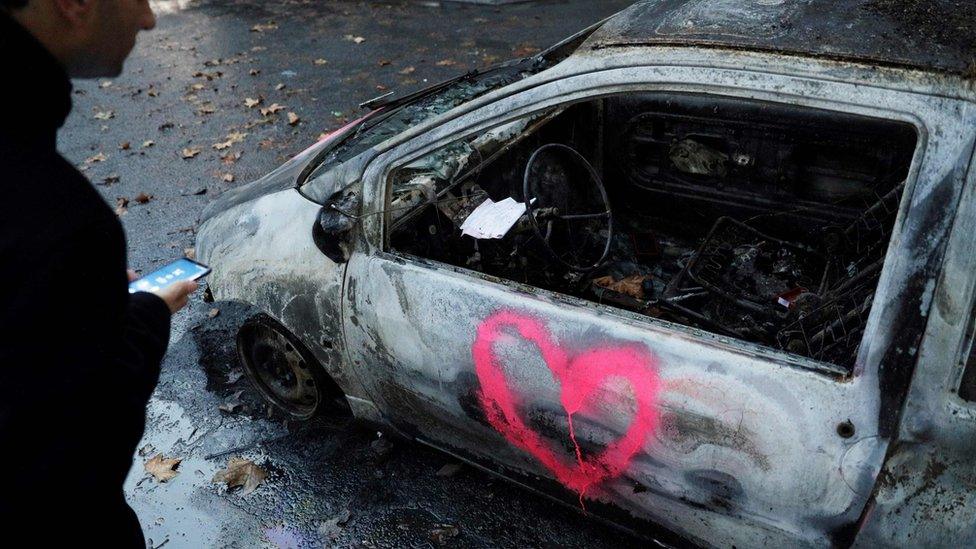
It began as a protest against a fuel tax rise
"Clearly the reason the yellow vests began to demonstrate was the so-called carbon or fuel tax," François Gemenne, a lecturer in environmental geopolitics at Paris's SciencesPo university, explained.
"But I'm not sure this [postponing the tax] will calm them down - most of them are just against tax."
Indeed, one of the leading members of the yellow vests - or "gilet jaunes" - appeared to almost echo these words.
"The measures announced today do not satisfy us at all - for the simple reason they don't go far enough," Benjamin Cauchy told the BBC's Chris Bockman in Toulouse.
"The French people want a complete political transformation. They want to change the way things have been for the last 30 years. We're sick and tired of taxes being raised and the quality of public services going down."

Read more

But, environmentalists warn, this wider campaign against tax could end up harming the advances made towards a greener society.
"It is not by turning our backs on ecology that we will emerge from the political crisis we are experiencing," French political party Europe Ecologie Les Verts warned, external in a statement.
"Ecology must not become the atoning victim of this government's bad choices."
'Will of the people'
Considering the damage on France's roads over the last few weeks, it could be other countries where environmental policies suffer most.
Mr Macron found a platform as the brave reformer, chastising US President Donald Trump for his refusal to sign up to the Paris accord.
His "Make the planet great again" refrain - a rip-off of Mr Trump's "Make American great again" slogan - immediately went viral.
French President Emmanuel Macron says Paris agreement will "make the planet great again"
And yet, Mr Macron cannot get the laws through his own country.
"Abroad, this is likely to be perceived as if we had a choice to make between social issues and then fight against climate change, as if they need to be contradicting each other," Mr Gemenne told the BBC.
"It begins to send the really wrong message: if you try to impose constraints to your people, they are likely to rebel and revolt."
It is a message which has already made its mark. Polish President Andrzej Duda referenced France's fuel tax rises at this week's UN-sponsored climate talks, COP 24, saying climate policies cannot be implemented against the will of the people.
What that message means for a country such as the US, run by a president who refuses to believe in the lasting negative effects of climate change, remains to be seen.
'Cart before the horse'
In fact, the protests are widely believed to be a result of how the tax was created, not why.
"The decision of the French prime minister... shows the government has done things upside down, and put the cart before the horse," the World Wildlife Fund's (WWF) Pierre Cannet told people gathered for the COP 24 talks.
"The carbon tax must be accompanied by a process, a process that is more consensual and as inclusive as possible."
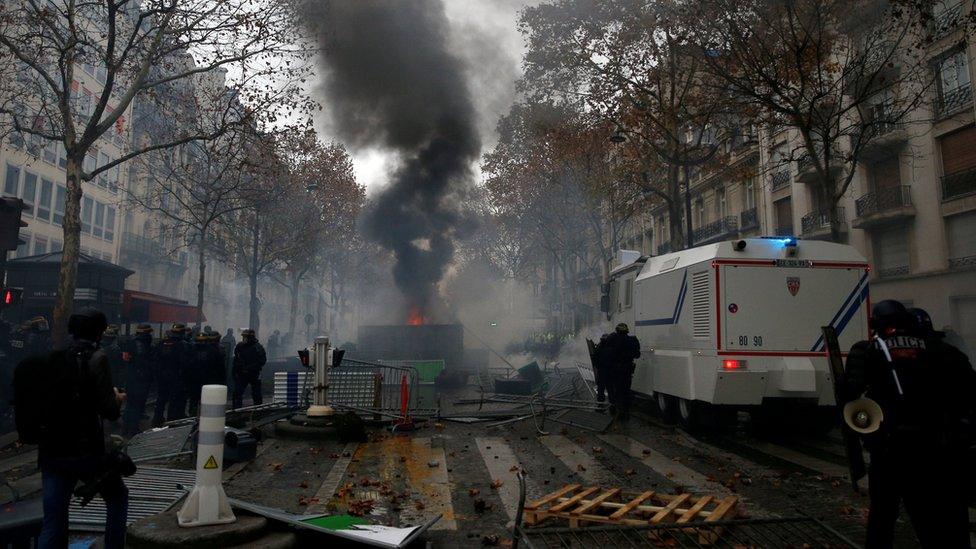
The tax was supposed to help reduce carbon emissions
Mr Gemenne agrees, pointing to the way the Paris accord was reached three years ago: with everyone's co-operation.
"It really kind of triggered this anger because it was [perceived as being] unfair, rather than being discussed collectively," he said.
"Macron needs to apply the same ideas as COP 21 in 2015, the same bottom-up recipe. But he is a very top-down president."
And failure is not the message France's climate campaigners want to leave people with.
In fact, Lorelei Limousin, of Réseau Action Climat, argues that the protests show how much France needs to change.
"It is a sign that our society is highly dependent on fossil energy and a car-based transport system," she said.
"We should get free of our addiction to the drug of hydrocarbons and cars by building a fossil-free transport system and moving beyond the current consumption and production forms to go 100% renewable and make greater energy savings."
For that reason, she is not giving up hope that this will be nothing more than a misstep on the way to a greener economy.
"This is a failure that the government will have to learn from so they can put in place measures for a fairer and more ambitious transition without delay," she said.
- Published4 December 2018
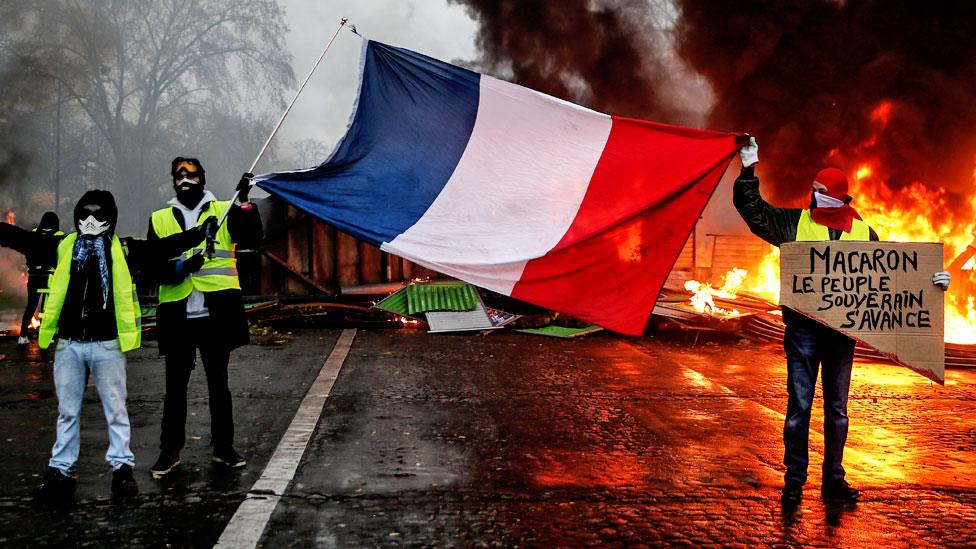
- Published6 July 2017
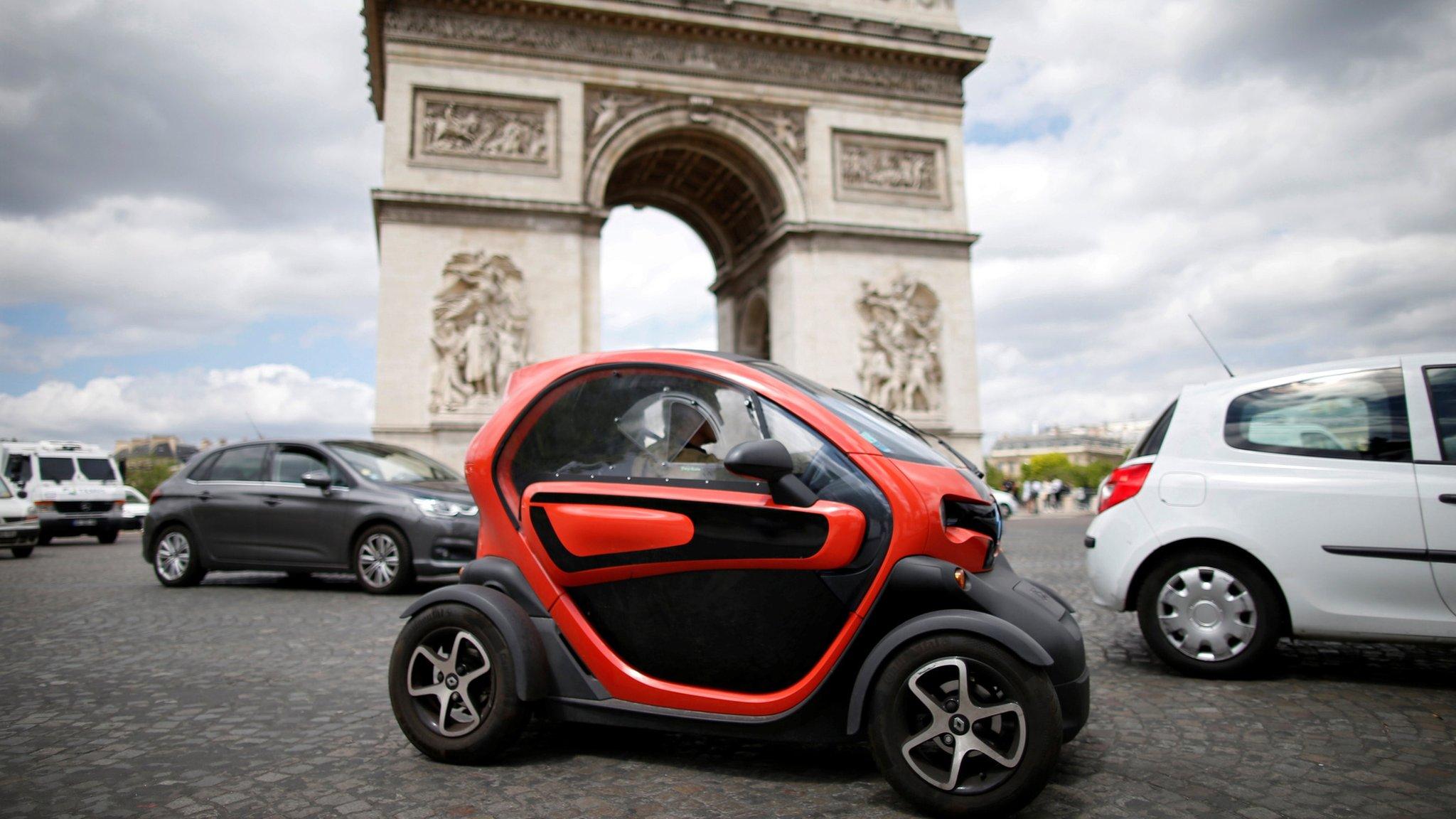
- Published21 November 2018
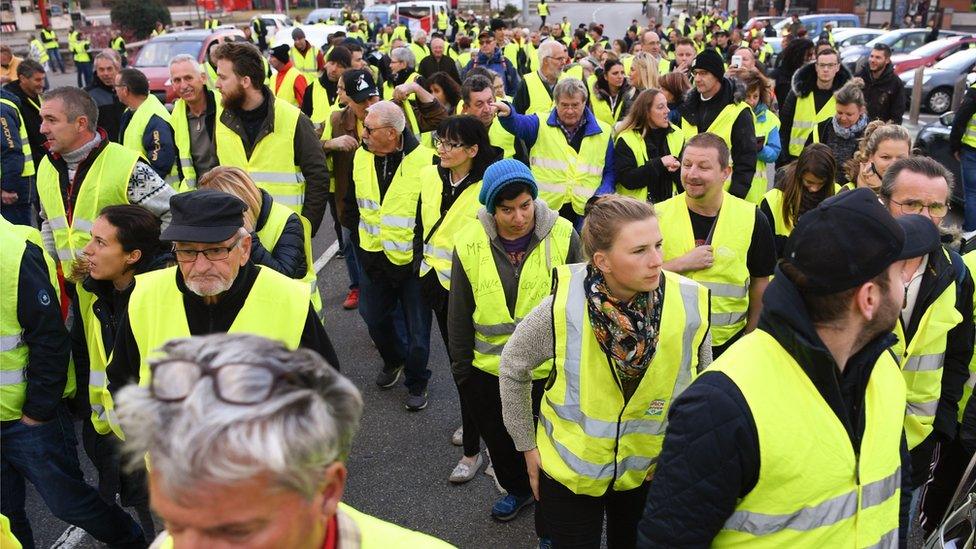
- Published27 November 2018
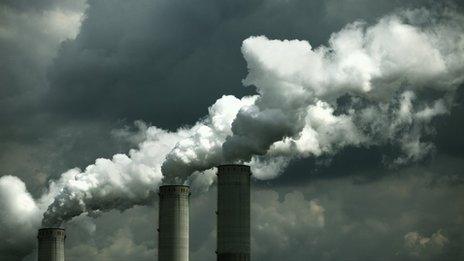
- Published3 December 2018
